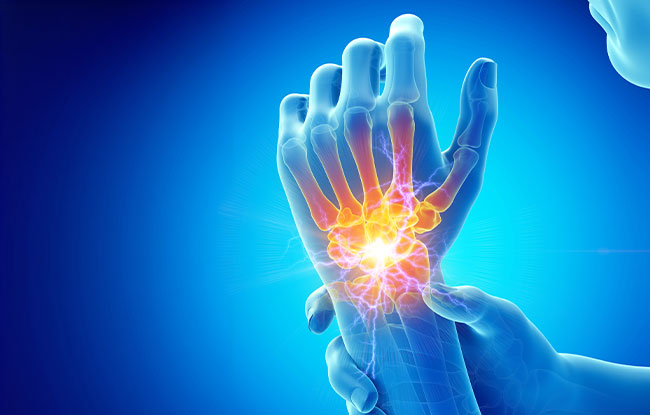Carpal Tunnel Syndrome Capitola
Carpal Tunnel Syndrome
Carpal tunnel syndrome occurs when the area around the median nerve to your hand is too tight. The carpal tunnel is the small space in your wrist where the median nerve passes. The functions of the median nerve are to transmit sensations for the fingers and hands to the spinal cord and control movement of the hand and forearm muscles. When the median nerve is compressed, the symptoms can include pain, numbness, and tingling in your hand. Other symptoms of carpal tunnel syndrome may consist of occasional shock-like sensations that move in your fingers, weakness in your hand, trouble holding things, and tingling that moves up into your arm. When carpal tunnel syndrome is severe, messages sent from the brain to the small muscles in the palm can be interrupted, causing the small muscles at the base of the thumb to weaken. The symptoms first often appear in one or both hands, usually during the night, with the dominant hand being the most affected.
National Institute of Neurological Disorders and Stroke considers Carpal Tunnel Syndrome the most common and widely known entrapment neuropathies affecting between 3 to 6 percent of adults in the United States.

What Causes Carpal Tunnel Syndrome?
Many cases of carpal tunnel syndrome have no specific cause. It also occurs most often in people ages 30 to 60, and it is more common in women than men. Other risk factors for carpal tunnel syndrome include:
- Heredity
- Repetitive hand use
- Hand and wrist position
- Pregnancy
- Health conditions such as diabetes, obesity, rheumatoid arthritis, and thyroid gland imbalance
- Workplace Factors
- Fracture or dislocation of the wrist
The risk of developing carpal tunnel syndrome is not limited to people in a single industry or job. However, people who do assembly-line work are more likely to develop it than those among data-entry personnel.
We Help Carpal Tunnel Syndrome
People often ignore the symptoms of carpal tunnel syndrome for too long, which can lead to permanent nerve damage. It’s essential to contact our clinic if you have pain and tingling in your hand. Our doctor can adequately diagnose carpal tunnel syndrome using a combination of your medical history, physical examination, and special nerve tests. Identifying carpal tunnel syndrome early can lead to significant long-term improvement and eliminate symptoms. Our doctor can work with you to develop a treatment program to improve your condition without surgery. Following our treatment program can effectively minimize the risk of complications and help you resume your everyday work, home, and leisure activities.
Carpal tunnel syndrome can be difficult to prevent. A person can be affected by this condition by performing many activities, and it can become a challenge to prevent. To know that you may have symptoms of carpal tunnel syndrome, consider contacting our office at (831) 200-0880.
